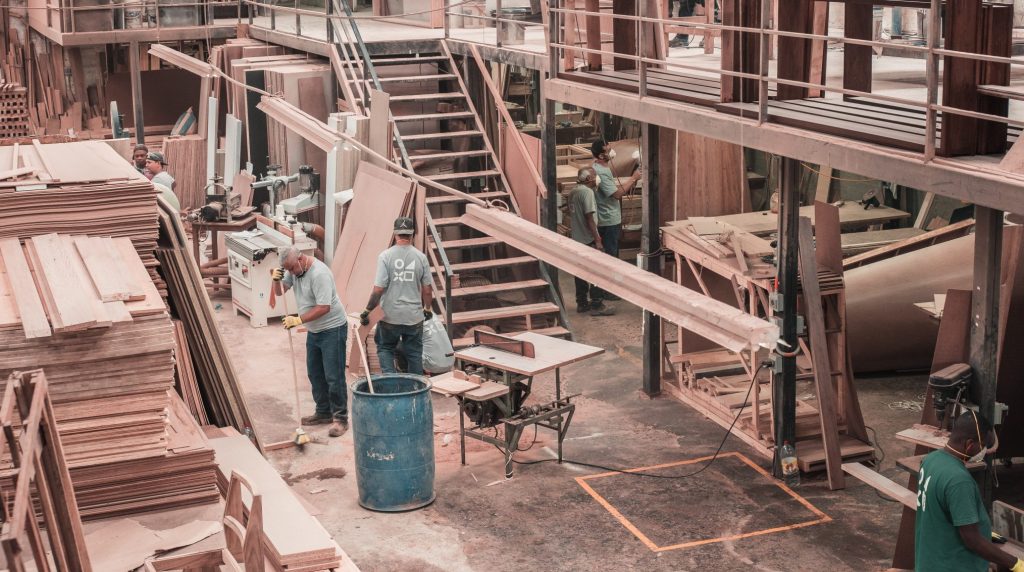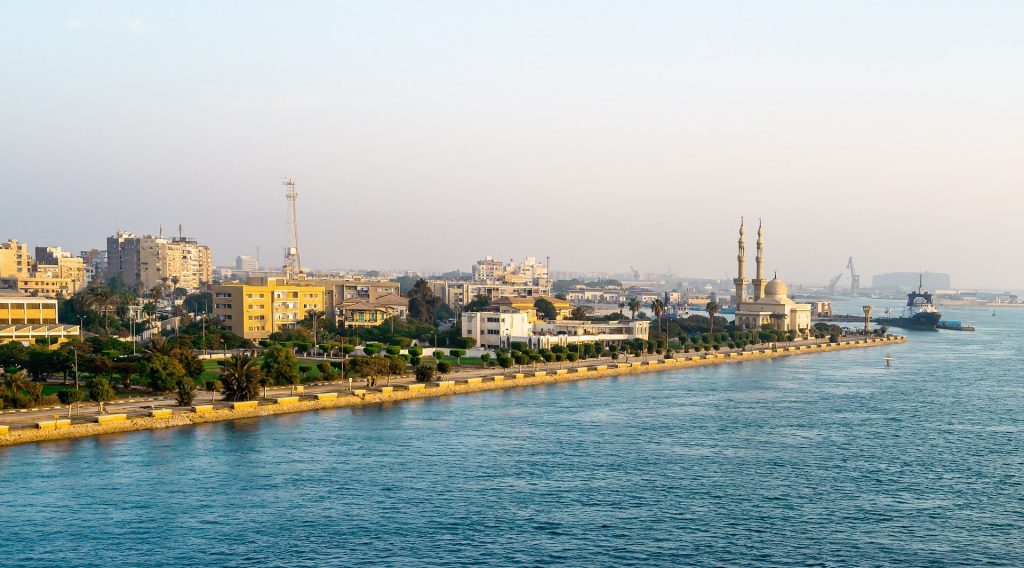When top African officials talk about the importance of economic integration within the continent, they speak with conviction and enthusiasm. “There is an urgent need for African countries to economically integrate and complement each other,” said President Abdel Fattah el-Sisi after meeting with Liberian officials and the ambassador to Egypt in November. “We have been organizing conferences with our African counterparts these past few years to overcome any obstacles on the ground.”
It was, therefore, no surprise that 54 of Africa’s 55 nations signed the African Continental Free Trade Agreement (AfCFTA) in March 2018. Eritrea didn’t sign due to deep-rooted conflicts with Ethiopia. However, two months before the deadline, only 29 countries have ratified the agreement, according to data from the African Union.
That is the crux of the problem that faced previous attempts to unify the continent economically. “The spirit of free trade is well represented at public forums across Africa,” Dianna Games, CEO of Africa @ Work, a consultancy focusing on African business issues, wrote in an op-ed in African Business magazine in February. “But policies and actions at a national level tend to paint a different picture, one that is characterized by the failure of leaders to implement the agreements they sign up to once the fanfare has died down.”
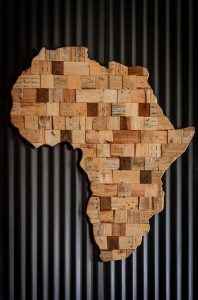
Egypt could benefit significantly from making AfCFTA work as it is one of the most industrialized countries in the continent with the potential to be an industrial hotspot for Africa’s raw and intermediary goods exports, according to Games. “South Africa, Egypt and Kenya will benefit most, certainly in short to medium terms,” she noted.
Fragmented continent
Intra-African commerce was 18 percent of the continent’s total trade volume last year, according to the African Union. That is a low figure given that the continent is home to 1.2 billion people with a total combined GDP of $2.5 trillion.
Further supporting the case for intra-African trade are five regional free trade agreements. The Economic Community of West African States (ECOWAS), a political and economic union of 15 countries, even plans to use a single currency, called ECO, to boost trade. According to research by the Trade Law Center, a public benefit organization in South Africa, trade among ECOWAS countries is less than 10 percent of their total commerce.
Egypt, which is part of the Common Market for Eastern and Southern Africa (COMESA), ranks near the bottom when it comes to African trade, despite its advantageous geographic location. According to the Central Bank, in fiscal year 2018/2019, trade with the continent was barely more than $1.billion — 1.11 percent of Egypt’s total volume.
New deal
The AfCFTA agreement is a brand new agreement that all African countries can choose to sign regardless of what other regional trade deals they may have. It supersedes the Tripartite Free Trade Area announced in 2015, which is a merger of COMESA, Southern African Development Community and East African Community. By February 2020, eight of 26 countries have ratified the agreement. “AfCFTA is the biggest free trade agreement since the World Trade Organization deal,” said Games of Africa @ Work.
Its goal is for intra-African trade to reach 54 percent of continental commerce by removing tariffs on 90 percent of goods traded within Africa by mid-2025. “The political will behind AfCFTA as well as strong support from the African Development Bank and other institutions may be what marks a departure from the past,” wrote Games.
Sean Doherty, World Economic Forum (WEF) head of trade and investment, stresses the importance of AfCFTA. “It is quite a big deal,” he said to African Business in March. However, he pointed out “there’s still quite a long way to go in terms of it having a concrete impact,” he added.
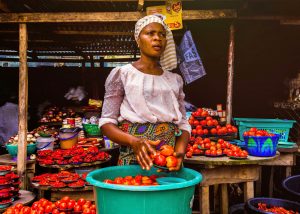
Deep-rooted issues
One of the biggest obstacles is that all African countries rely on either the dollar or euro when trading with each other, which increases the foreign exchange risk for both parties. The proposed single currency ECOWAS would be pegged to the euro, making it “a suboptimal solution,” said Brandon Locke, a strategic adviser at the Brussels International Centre, in February. “It severely limits the scope of flexibility in monetary policy, risks persistent overvaluation and disassociates regional circumstances from affecting the currency.”
The other problem is many African countries rely on exporting raw or lightly processed commodities to industrial powerhouses such as China and India. In return, those foreign countries often help build infrastructure in high-potential African states. “That limits the scope for mutually beneficial trade within Africa,” noted Games.
On the ground, significant non-tariff barriers hamper existing free trade agreements. In April 2019, there was a 90-kilometer queue of trucks at the Zambian border with the Democratic Republic of Congo. That despite both countries being part of the South African Development Community (SADC), an intergovernmental organization of 16 nations. The problem threatened to escalate to a diplomatic issue after Zambian President Edgar Lungu said he would report Congo to SADC for deliberately causing the congestion, thereby crippling incoming goods. Clearing the queue took seven days, truckers told The East African, a Kenyan publication.
A fourth issue is that AfCFTA nations have the highest levels of income disparity of any continental free trade agreement participants, according to the WEF. “It is more than double the levels witnessed in blocs such as ASEAN [Association of Southeast Asian Nations] and CARICOM (Caribbean Community).”
In a blog on the Atlantic Council website, Jonny Gass, assistant director at the Atlantic Council’s Africa Center, worte that the disparity is mainly caused by the industrialization of some countries. Egypt and South Africa are highly industrialized nations in need of raw materials, for instance, while Chad, Congo and Zambia mostly export commodities or lightly processed goods. That means that what may work for the former group, such as ensuring a cheap supply, wouldn’t work for the latter, which could manipulate exports to prop up prices.
Accordingly, any large-scale continental free trade agreement will find it difficult to “harmonize Africa’s heterogeneous economies under one agreement,” wrote Rilwan Akeyewale, CEO of Grandir Inc., to the WEF in a blog. “For example, over 50 percent of Africa’s cumulative GDP is contributed by Egypt, Nigeria and South Africa, while Africa’s six sovereign island nations collectively contribute just 1 percent.”
Winners and losers
If the free trade agreement is workable on the ground, that economic disparity will create winners and losers. “We don’t have electric power; our manufacturers are still struggling to break even,” said Nigerian PhD student Umeh Chidozie to Deutsche Welle (DW). “Companies will go to a more stable environment where the cost of production will be cheap to manufacture and bring it into Nigeria’s large market to sell without paying duty. We will lose a lot of jobs.”
According to a paper published by the WEF on AfCFTA, countries that would benefit are those that can open new import and export markets on the continent. “This expands their customer base and leads to new products and services, making investing in innovation viable,” it noted.
Also, a continental free trade agreement would increase manufacturing as a percentage of GDP across Africa. According to the WEF, manufacturing stands at 10 percent of Africa’s cumulative output. A successful continental free trade area could increase that percentage, noted the forum. “A bigger manufacturing sector will lead SMEs to create more well-paid jobs, especially for young people, thereby alleviating poverty.”
It also would attract foreign direct investment from outside the continent to countries with the most robust industrial sectors, such as Egypt because production costs would be lower if local companies source inputs from other African countries. “Global companies have more expertise than domestic companies to develop local resources,” wrote the WEF. “The AfCFTA will allow multinationals to partner with local firms to develop raw materials, training them in best practices and transferring technology in the process.” Meanwhile, selling in those markets also would be financially and logistically advantageous.
On the flip side, companies with limited manufacturing capabilities or countries that are net importers would suffer from increased competition as more customs-exempt goods enter. “Consumers [especially in poor countries] always prefer cheaper products,” noted the WEF paper. “This may lead to local producers losing huge sales to foreign suppliers because the latter can lower the cost of their products by leveraging the reduced tariffs imposed on imported goods.”
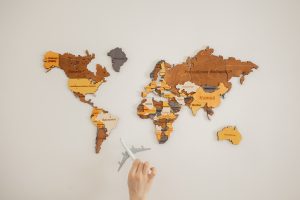
Tougher competition also could lead to lax enforcement of environmental laws as a way to keep costs down. Meanwhile, without proper intellectual property rights laws, local companies could steal ideas developed elsewhere as a way of cutting costs. “With the AfCFTA, this could get worse, leading SMEs to invest poorly in research and development,” said the paper.
For Games, the model by which all free trade agreements are approved is flawed. “Governments are the ones negotiating the trade agreement and leading the way to unify the continent,” she said to African Business. “It needs to be businesses leading that effort, with the government representing their wishes.”
Balancing the scales
Realizing many African countries could fall behind, the WEF created the Global Alliance for Trade Facilitation (GATF) as a standalone initiative to support and guide countries on how to reform trade practices. “In Zambia, they are looking at customs broker licensing systems and trying to make things easier… and it [all] becomes less bureaucratic,” said Doherty, of the WEF to African Business Magazine. “In Ghana and Kenya, it’s more to do with advanced rulings for customs, so you know how much you’re going to pay before goods arrive rather than waiting.”
GATF has additional projects in Morocco and Nigeria. “There are discussions happening about investment facilitation at the World Trade Organisation. What we’re doing is taking these ideas and talking to local businesses and governments and seeing which ones are relevant,” said Doherty.
The AfCFTA agreement also contains clauses to support less industrialized countries. According to Togo Foreign Minister Robert Dussey, speaking to DW in September, the “least developed countries” as classified by the United Nations will have 10 years to enforce it fully. Meanwhile, Mozambique, Niger and Malawi will get 15 years to remove all customs on imports. “It will need an effort to give them the technical tools to meet the challenges ahead,” Dussey said.
Could it succeed?
Doherty believes the key will be for African countries to implement effective manufacturing and SME policies to capitalize on AfCFTA while protecting local businesses. “These must focus on productivity, competition, diversification and economic complexity,” he told African Business Magazine in March. The other challenge will be to introduce “healthy competition without killing local businesses.”
Doherty also hopes influential African countries like Egypt and South Africa agree to give preferential treatment for Africa’s most at-risk economies. “The deal must build a participatory institutional architecture to avoid leaving any economies behind,” he said. “Otherwise, AfCFTA could prove to be a force of economic divergence, rather than a force for good.”




